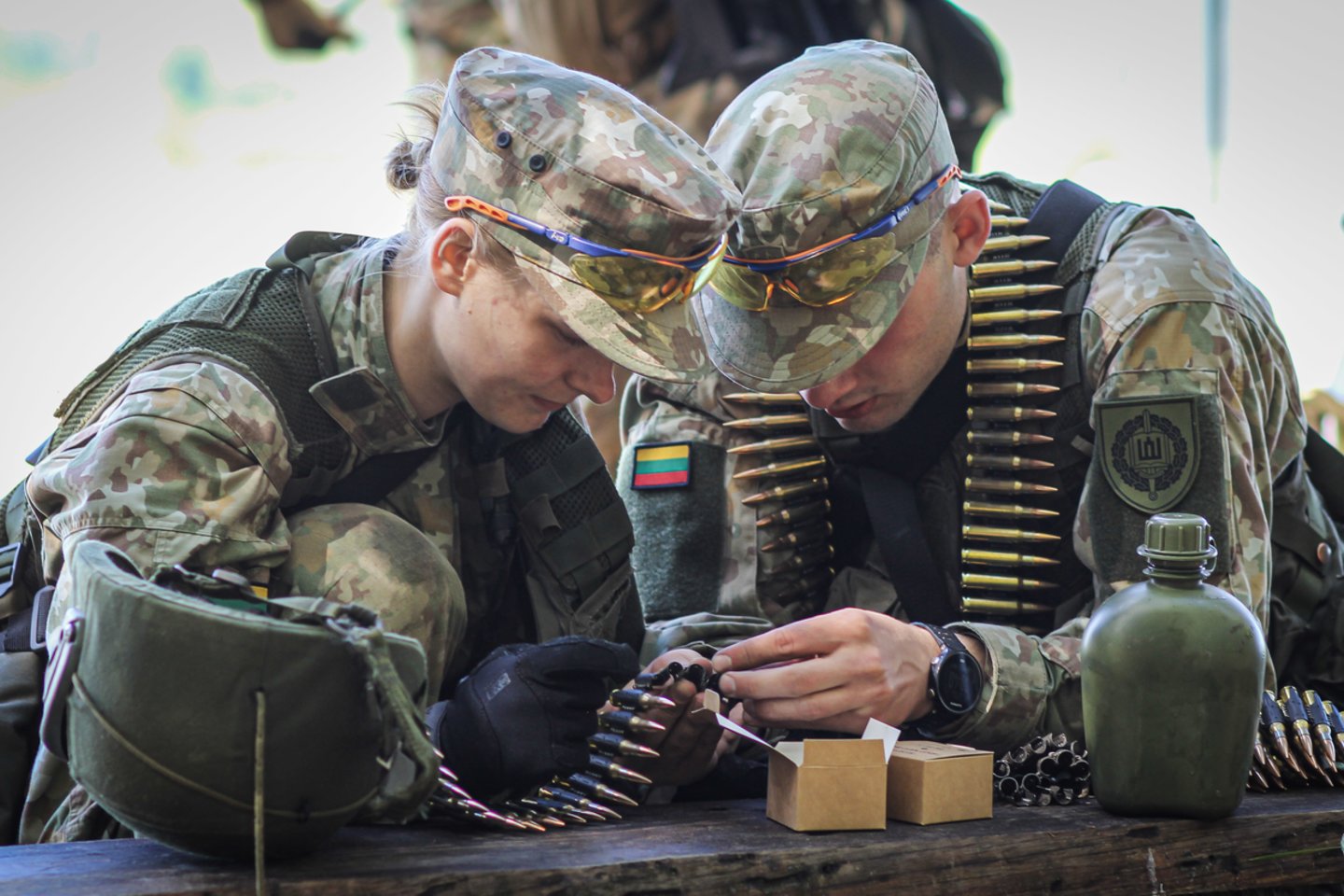According to Gabrielius Landsbergis, the leader of the Conservatives, this plan reflects the Conservatives' position on the priorities for strengthening the country's defence.
„This is simply the party's position ahead of the debate on the next steps needed to strengthen national defence. We have focused on the general conference to approach that issue. Colleagues have presented various ways, which will probably also be presented at the meeting on Monday, where the Prime Minister is inviting the parties' leaders,“ G. Landsbergis told reporters after the meeting of the TS-LKD Presidium.
„This is the starting point from which you go into the conversation and look for common ground. I would say that this is a strongly expanded (...) party mandate,“ he stressed.
The Conservative leader stressed that the parties' leaders first need to agree on assessing the Russian threat to Lithuania.
„First, we need to agree on whether Russia is a growing threat to Lithuania. And this is a question for political leaders to answer. If some think it is not a growing threat, then the discussion is complicated“, the politician said.
However, according to G. Landsbergis, if there is a consensus that Russia is a growing threat to Lithuania, we need to talk about a response.
„The whole region is talking about the fact that countries have 2–3 years to prepare even for a potential NATO challenge from Russia“, he stressed.
Although the plan stresses that defence funding must be increased from sustainable sources, the party chairman did not elaborate on the specific funding model.
„It has to be a coherent, clearly envisaged source to help achieve the objectives we are talking about. We have discussed some general figures on the amounts we are talking about, and the document will also reflect those approximate amounts that are foreseen. And the funding models, I think the Prime Minister will present in more concrete terms,“ he said.
The National Defence Plan consists of 10 steps.
Introduction of universal conscription
The Conservatives' National Defence Plan proposes the introduction of universal conscription. This is proposed to be adopted in 2024 and gradually reach full coverage by 2030.
According to the plan, 3 845 conscripts for permanent compulsory initial military service are to be called up in 2024.
„It is estimated that before the full implementation of universal conscription, the initial investment in infrastructure, armaments, military equipment and machinery alone should amount to at least €440 million in the case of a boys-only conscription and around €1.5 billion in the case of a males' and females' conscription,“ the Conservatives' plan stressed.
It also notes that the annual cost of maintaining the universal conscription model would be around €80 million if only males were conscripted or €220 million if females were conscripted.
It is proposed to provide sustainable sources of budgetary revenue for the financing of national defence
The Conservatives also propose to identify essential needs for additional defence funding to ensure the establishment of a fully operational weighted division and its capabilities by 2030, the reception of the Allied Brigade, the necessary modernisation and expansion of the army's capabilities, the implementation of universal conscription, and the current level of Lithuania's military support to Ukraine at least until 2026.
„If we want to ensure that defence funding in 2025 (as a percentage of BVP(GDP) does not decrease compared to 2024, decisions on additional revenue measures should be taken in the near future, in the first half of 2024 (while maintaining the provision on a 6-month effective date for tax changes),“ reads the document approved by the Presidium.
The plan stresses that defence funding must be secured from sustainable sources, with an additional provision of at least 0.5% of BVP (GDP) from 2025, when the Temporary Solidarity Contribution Law expires.
Also highlighted is the proposal to initiate a Defence Social Contract for essential defence needs and sustainable further defence budget growth.
Fortification belt on the border with Russia and Belarus
The plan also includes a proposal to install a set of counter-mobility measures on the borders with Belarus and the Kaliningrad region of the Russian Federation as an integral part of the country's defence concept. It emphasises that deploying such measures, in coordination with Latvia and Estonia, would create a standard Baltic defence line.
„Effective and well-planned integration of counter-mobility assets and firepower can help the national and allied forces achieve victory. Physical barriers created can increase the effectiveness of the armed forces' firepower in responding to enemy advances and consequently increase the chances of winning the battle,“ the document stressed.
The plan also proposes to update key strategic documents for Lithuania's defence, which require a broad political consensus, to intensify work with the reserve, modernise the armaments and increase defence capabilities. Proposals include the development of the defence industry, the strengthening of territorial defence units, the strengthening of the defence capabilities of the Baltic Sea states and regional formats, and the strengthening of coordination of responses to hybrid attacks.
The Conservatives also emphasise the need to strengthen the readiness of the medical sector to act in times of war, stress the importance of strengthening civil protection, and the need to increase the will and capacity of Lithuanian citizens to defend their country.

